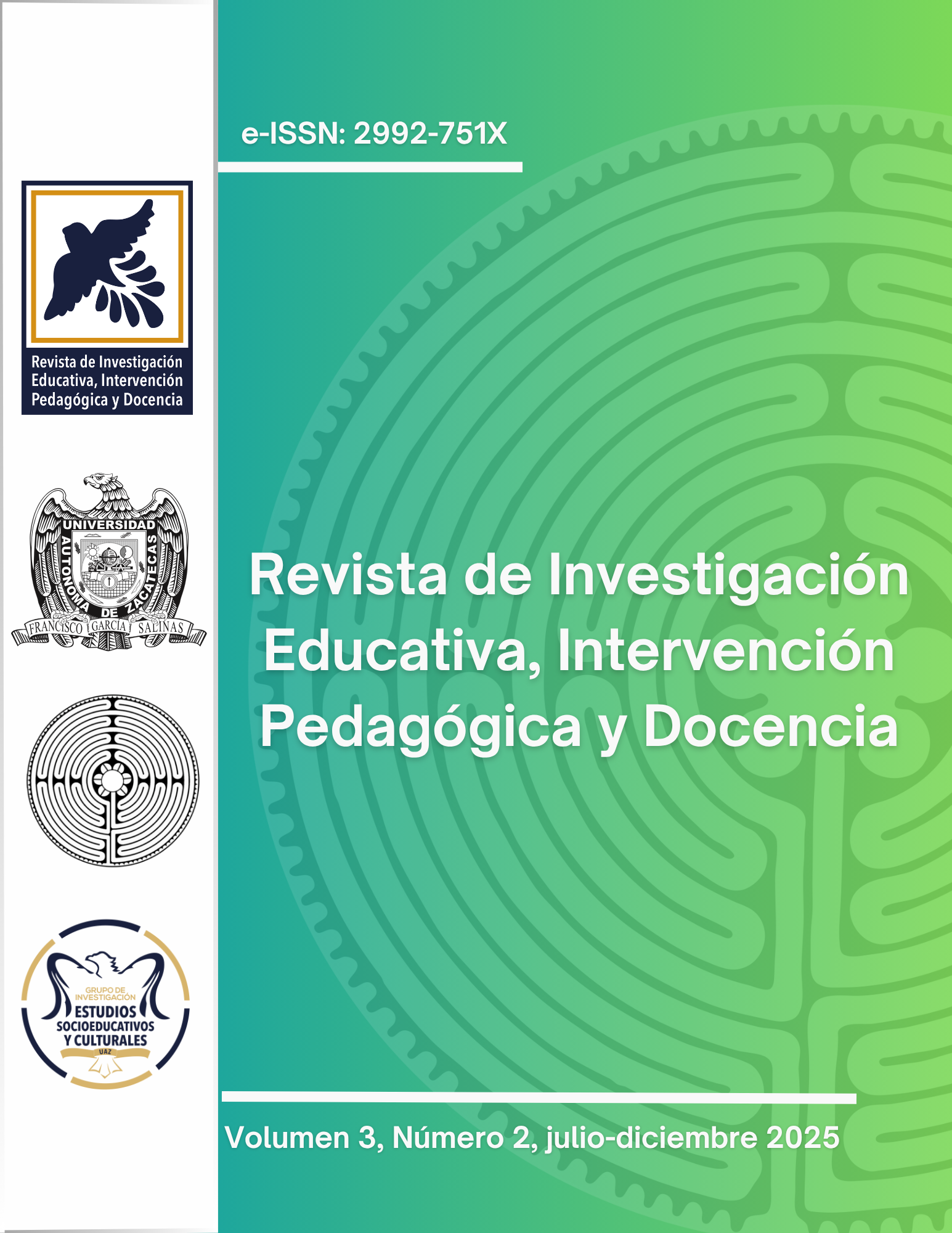Analysis of the articulation of the New Mexican School with community education for well-beig of CONAFE
Published 2025-07-04 — Updated on 2025-08-27
Versions
- 2025-08-27 (3)
- 2025-08-13 (2)
- 2025-07-04 (1)
Keywords
- rural education,
- educational contextualization,
- educational quality
Copyright (c) 2025 Omar Salvador Santos Andrade, Elizabeth Cortés Palma

This work is licensed under a Creative Commons Attribution-NonCommercial-ShareAlike 4.0 International License.
How to Cite
Abstract
This research analyzes the articulation of the New Mexican School (NEM) with Community Education for Well-being (ECB) of the National Council for Educational Development (CONAFE), in order to determine the challenges and opportunities in its implementation in rural communities. The study was carried out in the rural community of Echeverría, Hidalgo, and uses a qualitative approach with an ethnographic design, based on interviews and direct observations with community educators and students. The results show that, although the link between the NEM and the ECB promotes more inclusive and contextualized educational practices, there are challenges in the prioritization of content, time limitations for the development of the analytical plan, and an incomplete understanding of the model by some educators. However, the benefits stand out in terms of community relevance and strengthening the sense of belonging among students. The research suggests the need for more training for educators and better structure in curriculum implementation to optimize the benefits of both educational approaches.
Downloads
References
- Becker, G. S. (1964). Human capital: A theoretical and empirical analysis, with special reference to education. University of Chicago Press.
- Ble Acosta, L. B., & Cornelio Landero, E. (2023). Educación inclusiva para un entorno de paz. Eirene Estudios De Paz Y Conflictos, 6(10), 179–208. https://estudiosdepazyconflictos.com/index.php/eirene/article/view/201
- CONAFE. (2022). Educación Comunitaria para el Bienestar. https://www.gob.mx/conafe/acciones-y-programas/educacion-comunitaria-del-conafe
- Creswell, J. W. (2013). Qualitative inquiry and research design: Choosing among five approaches. SAGE Publications. https://revistapsicologia.org/public/formato/cuali2.pdf
- Flick, U. (2018). An introduction to qualitative research. SAGE Publications.
- Freire, P. (1970). Pedagogy of the oppressed. Continuum.
- Gobierno de México. (2022, 01 de junio). Educación Comunitaria para el Bienestar. Modelo pedagógico que ofrece una alternativa educativa encaminada a aprender a aprender, basado en los principios de la relación tutora. https://www.gob.mx/conafe/acciones-y-programas/educacion-comunitaria-del-conafe
- Hammersley, M., & Atkinson, P. (2019). Ethnography: Principles in practice. Routledge. https://doi.org/10.4324/9781315146027
- Jiménez Naranjo, Y., & Kreisel, M. (2018). Participación comunitaria en educación-reconfiguraciones de lo escolar y de la participación social. Teoría De La Educación. Revista Interuniversitaria, 30(2), 223–246. https://doi.org/10.14201/teoredu302223246
- Krippendorff, K. (2018). Content analysis: An introduction to its methodology. SAGE Publications.
- Patton, M. Q. (2015). Qualitative research and evaluation methods. SAGE Publications.
- Quispe-Martínez, D. E., & Castillo, F. (2022). Reflexiones sobre la educación comunitaria: una mirada alternativa a la educación formal. Latin American Journal of Humanities and Educational Divergences, 1(1), 33-48. https://revistas.jjsanmarcos.org/index.php/lajhed/article/view/7
- Ruz Herrera, I. (2018). Evaluación para el aprendizaje. Revista Educación Las Américas, 6, 13-28. https://revistas.udla.cl/index.php/rea/article/view/22
- Secretaría de Educación Pública (SEP) (2022a). Informe sobre la implementación de la Nueva Escuela Mexicana en comunidades rurales.
- Secretaría de Educación Pública (SEP) (2022b). El diseño creativo. En Avance del contenido para el libro del docente. Primer grado. [Material en proceso de construcción], pp. 25-32. https://educacionbasica.sep.gob.mx/wp-content/uploads/2022/12/El-diseno-creativo.-Avance-del-contenido-del-Libro-del-docente.-Primer-grado.pdf


